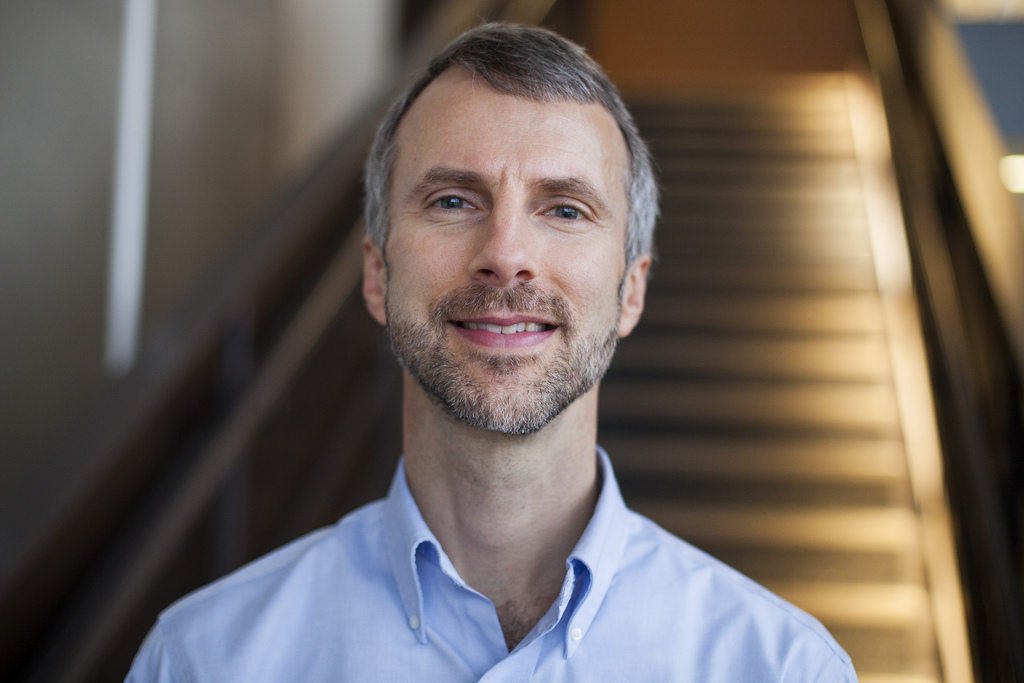
Communications and Signal Processing Seminar
Accelerated Optimization for Dynamic MRI Reconstruction with Locally Low-Rank Regularizers
This event is free and open to the publicAdd to Google Calendar

Abstract: Many image reconstruction problems involve models that assume that an image or image sequence satisfy low-rank or locally low-rank properties. These models often involve optimization problems involve nuclear norms or Schatten p-norms. Many machine learning problems like robust PCA also involve such regularizers. For convex problems with a single nuclear norm or Schatten p-norm regularizer, the proximal optimized gradient method (POGM) with adaptive restart is a very effective first-order method that converges faster than FISTA and avoids the extra tuning parameters needed by augmented Lagrangian and ADMM methods. Nevertheless, such first-order proximal methods have worst-case convergence rates that are slower than the asymptotic convergence rates of smooth optimization algorithms like nonlinear CG, or methods like (limited memory) quasi-Newton algorithms that bring in second-order information. Furthermore, such first-order methods seem inapplicable to locally low-rank models that involve regularizers that sum numerous nuclear norms of overlapping patches, because such regularizers are not prox friendly. This work-in-progress explores the use of smooth approximations to nuclear norms to facilitate gradient-based optimization methods for regularizers based on global and local low-rank models.
Joint work with Rodrigo Lobos, Javier Salazar Cavazos, & Raj Nadakuditi
Bio: Jeff Fessler is the William L. Root Professor of EECS at the University of Michigan. He received the BSEE degree from Purdue University in 1985, the MSEE degree from Stanford University in 1986, and the M.S. degree in Statistics from Stanford University in 1989. From 1985 to 1988 he was a National Science Foundation Graduate Fellow at Stanford, where he earned a Ph.D. in electrical engineering in 1990. He has worked at the University of Michigan since then. From 1991 to 1992 he was a Department of Energy Alexander Hollaender Post-Doctoral Fellow in the Division of Nuclear Medicine. From 1993 to 1995 he was an Assistant Professor in Nuclear Medicine and the Bioengineering Program. He is now a Professor in the Departments of Electrical Engineering and Computer Science, Radiology, and Biomedical Engineering. He became a Fellow of the IEEE in 2006, for contributions to the theory and practice of image reconstruction. He received the Francois Erbsmann award for his IPMI93 presentation, the Edward Hoffman Medical Imaging Scientist Award in 2013, and an IEEE EMBS Technical Achievement Award in 2016. He has served as an associate editor for the IEEE Transactions on Medical Imaging, the IEEE Signal Processing Letters, the IEEE Transactions on Image Processing, the IEEE Transactions on Computational Imaging (T-CI), and is currently serving as an associate editor for SIAM J. on Imaging Science and a Senior AE for T-CI. He has chaired the IEEE T-MI Steering Committee and the ISBI Steering Committee. He was co-chair of the 1997 SPIE conference on Image Reconstruction and Restoration, technical program co-chair of the 2002 IEEE International Symposium on Biomedical Imaging (ISBI), and general chair of ISBI 2007. He received the 2023 Steven S. Attwood Award, the highest honor awarded to a faculty member by the College of Engineering. His research interests are in statistical aspects of imaging problems, and he has supervised doctoral research in PET, SPECT, X-ray CT, MRI, and optical imaging problems.
*** The event will take place in a hybrid format. The location for in-person attendance will be room 3433 EECS. Attendance will also be available via Zoom.
Join Zoom Meeting: https://umich.zoom.us/j/91414297851
Meeting ID: 914 1429 7851
Passcode: XXX (Will be sent via email to attendees)
Zoom Passcode information is available upon request to Shelly Feldkamp ([email protected]).
 MENU
MENU 
